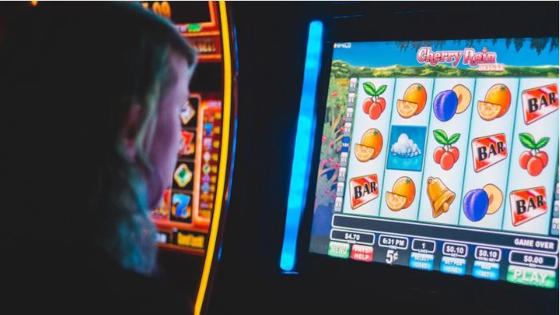
Reports showing the “substantial” social cost of gambling in the Northern Territory and its impact on Aboriginal communities have been quietly made public by the NT government after the ABC requested copies.
The Social Costs of Gambling Harms in the Northern Territory Report, conducted by the Menzies School of Health Research, estimated the impact of gambling on at-risk gamblers and the harm caused to others costs the Territory more than $190 million each year.
The authors said the estimated cost, calculated from 2018 data, was likely “relatively conservative” as there were some factors that could not be measured, such as the impact of gambling on children.
The cost arising from gambling was found to be around one-eighth of the harms from alcohol in the Territory.
Another report analysing patterns of online gambling stated there was an “urgent need” to reform regulations across the industry.
“There is an urgent need to develop improved regulation through legislation that mandates gamblers set limits on spending, time, and number of gambling activities (not just online, but across all types of gambling),” the report stated.
“Further, enforcement of regulations, legislation and code of conduct be improved, focusing on consumer protections, rather than placing all the onus of responsibility of the gambler, especially for gamblers with indications of addiction.”
In a further report investigating gambling among Indigenous Territorians, more than 40 per cent of a sample of First Nations people living in regional areas who already engaged in gambling behaviours were categorised as either moderate-risk or problem gamblers.
Based on the findings, the report made a suite of recommendations to the government to help reduce gambling-related harms, including:
- Return to coins only at venues and reduce the ability to load up pokies, from $1,000 down to $100 at the one time
- Remove or limit the number of pokies available in pubs and clubs
- Employ gambling support workers at venues to check on people and offer support
- Establish gambling support services in remote areas with services designed specifically for Aboriginal people
The final reports — all funded by grants from the government’s Community Benefit Fund — were completed in August 2021, but were not made public until September this year, after the ABC submitted a request for access to the office of the Minister for Racing, Gaming and Licensing, Chansey Paech.
It comes as the NT government this month suspended applications for pokies licences at Alice Springs pubs and hotels for nine months following widespread community backlash.
Mr Paech said he was considering a range of reforms around gambling policy amid a review of the licence application process.
“I certainly think that everything should be on the table as we work through this because supporting people in our community and supporting people who have addictive behaviours to overcome those challenges is really important,” he said.
“My role as a member of parliament is to absolutely make sure that the community voices are heard and that we respond and that there’s good programs and policy settings in place.”
Mr Paech, who is also the Attorney General, said he had heard the community’s concerns “loud and clear”, and would take more action on harm minimisation in gambling.
“We absolutely know that with gaming and with problem gamblers comes the need to have good harm minimisation practices in place to support people,” he said.
“You only have to look nationally around the country with the settings that are in WA, in Queensland, and very recently in Tasmania, they’ve brought in a number of reforms where they monitor how much people spend every year.”
Amid growing scrutiny over casino and gambling operators across the country, gambling taxes remain a significant revenue stream for the NT government.
For 2020-21, the government reported an increase of $14.6 million in casino and gambling taxes, which it says was likely due to a “delayed demand for recreational gambling”, as pokies venues closed due to COVID-19.